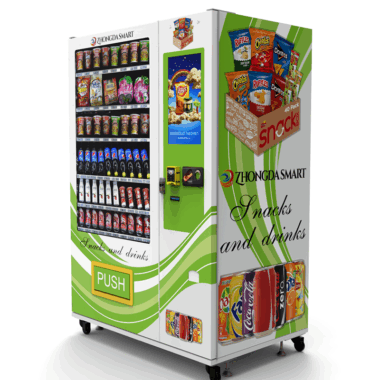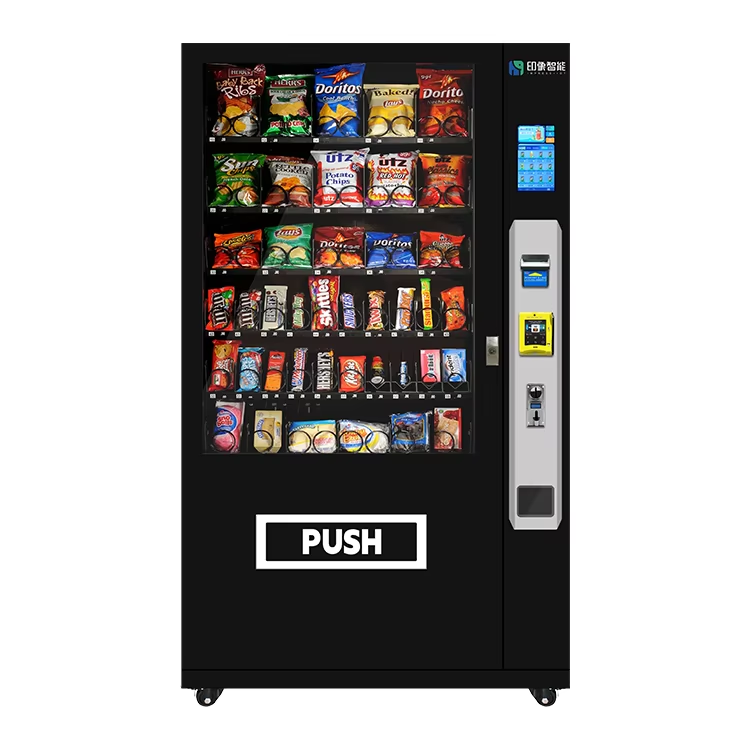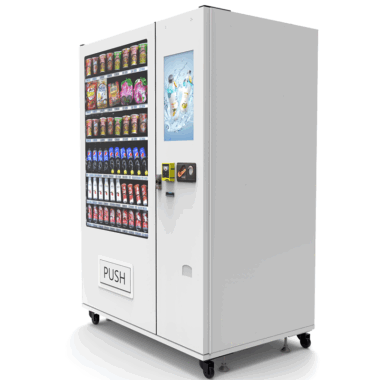Cities worldwide are facing rapid urbanization, increasing population density, and rising environmental challenges. To meet sustainability goals, urban planners and businesses are turning to eco-friendly smart vending machines that combine technology, convenience, and green practices. For manufacturers and distributors, this shift represents not only an opportunity but a responsibility to design machines that align with future-ready standards.
1. Why Eco-Friendly Vending Machines Matter
Traditional vending machines often consume high energy and generate significant waste. By contrast, eco-friendly smart vending solutions emphasize:
-
🌱 Reduced energy consumption with smart cooling and LED systems
-
♻️ Biodegradable packaging for sold products
-
🚮 Waste separation compartments to encourage recycling
This evolution mirrors broader shifts across industries, where efficiency and sustainability drive purchasing decisions.
2. The Role of Smart Technology
Today’s smart vending machines go beyond dispensing products. They integrate:
-
📊 IoT monitoring systems for inventory and usage trends
-
💳 Cashless, contactless, and mobile payments
-
🔋 Energy-saving modes triggered by low traffic periods
Such innovations improve customer convenience while lowering carbon footprints, making them a critical investment for sustainable city initiatives.
3. Urban Applications for Sustainable Cities
Eco-friendly vending machines are already redefining public spaces:
-
🚏 Transport hubs: airports, train stations, and bus depots use vending for on-the-go snacks and essentials
-
🏙 Smart offices and co-working spaces integrate them for healthy meal options
-
🏫 Schools and universities utilize them to promote eco-conscious consumption among students
This combination of accessibility and green responsibility positions vending as a pillar of sustainable urban planning.
4. Factory Innovation in Eco-Friendly Vending
The shift toward sustainability depends on vending machine factories investing in greener technologies. These facilities are designing units with:
-
🌍 Recyclable materials such as aluminum and eco-friendly plastics
-
🛠 Modular components that extend product lifespan
-
⚡ High-efficiency cooling systems reducing energy usage
Just as industries invest in specialized production like Wooden Bed Manufacturer for eco-conscious furniture, vending factories must lead the way in sustainable product design.
5. Linking to Smart City Goals
For cities, vending machines aren’t just about convenience—they support broader initiatives:
-
📉 Reduced plastic waste through reusable packaging options
-
🏗 Efficient land use by integrating vending into smart city infrastructure
-
🛒 24/7 automated retail that reduces the need for traditional storefronts
Municipalities and businesses alike benefit from aligning with sustainability benchmarks, making vending machines a viable partner in eco-friendly development.
6. Customization and Branding Opportunities
Eco-friendly vending machines offer full customization, allowing businesses and governments to showcase commitment to sustainability. Branding options include:
-
🌐 Eco-themed graphics promoting green initiatives
-
🏢 Corporate branding for workplaces and smart campuses
-
🎉 Localized designs tailored to city or regional goals
Similar to tailored solutions from Bed Frame Manufacturer in the furniture industry, vending suppliers can offer eco-friendly machines customized for client needs.
Conclusion
Eco-friendly smart vending machines represent the future of urban retail and sustainable infrastructure. By reducing energy consumption, cutting waste, and integrating advanced technology, they provide cities with a green solution that serves both businesses and communities.
📌 For organizations and municipalities committed to sustainable development, partnering with an innovative vending machine factory is a powerful step toward shaping tomorrow’s eco-conscious cities.









